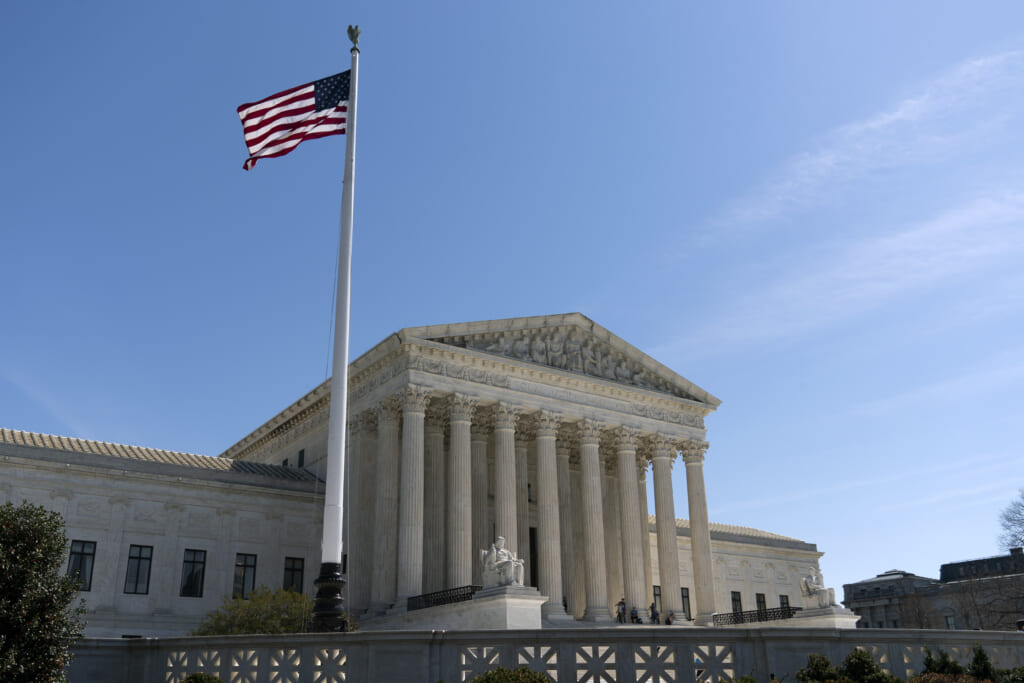Supreme Court allows for defendants to sue police when charges dropped
The ruling stems from a New York case where Larry Thompson was falsely accused of abusing his newborn
The US Supreme Court has made it easier for people to sue police for wrongful arrests.
On Monday, the Supreme Court, on a 6-to-3 vote, ruled that victims who are charged after a false arrest or due to fabricated evidence can take legal action through a Fourth Amendment lawsuit under civil rights laws, as reported by NBC News. The high court said the plaintiff need not have been found innocent in the case or acquitted to hold the police accountable for being reckless.

“A plaintiff need only show that his prosecution ended without a conviction,” Justice Brett M. Kavanaugh wrote for the majority, per the report. The ruling also protects against unlawful seizures.
The ruling stems from a New York case where Larry Thompson was falsely accused by his sister-in-law of abusing his newborn. She was staying in his apartment when she called 911 eight years ago with the abuse allegations.
When police arrived, Thompson refused to allow them inside his residence without a warrant. NYPD officers forcibly entered anyway and arrested him. The baby was examined by EMTs who confirmed there were no signs of abuse, only a diaper rash.
Per the report, Kavanaugh wrote that the sister-in-law “apparently suffered from a mental illness” when she called 911, the woman Washington Post reports.
Thompson was initially charged with resisting arrest and jailed for two days. An investigation revealed that an officer falsely reported Thompson was aggressive and resisted police. The New York District Attorney later dismissed the charges “in the interest of justice.”
Thompson took legal action, claiming “malicious prosecution and violation of his constitutional rights,” per the NBC News report, but a federal district judge and a panel of the U.S. Court of Appeals for the 2nd Circuit said he could not sue the officers unless he could show “his criminal prosecution ended not merely without a conviction, but also with some affirmative indication of his innocence,” Kavanaugh wrote.
The high court found that NYPD officers violated Thompson’s Fourth Amendment civil rights.
“Requiring a plaintiff to show that his prosecution ended with an affirmative indication of innocence is not necessary to protect officers from unwarranted civil suits — among other things, officers are still protected by the requirement that the plaintiff show the absence of probable cause and by qualified immunity,” Kavanaugh wrote.
The court’s decision paves the way for Thompson, a U.S. Navy veteran and Postal Service worker, to sue the New York Police Department for damages related to the false arrest.
The ruling overturns existing practices in the state and across the nation that protect police officers from civil lawsuits after they are exposed for lying and fabricating evidence in cases.
TheGrio is now on your TV via Apple TV, Amazon Fire, Roku, and Android TV. Also, please download theGrio mobile apps today!


